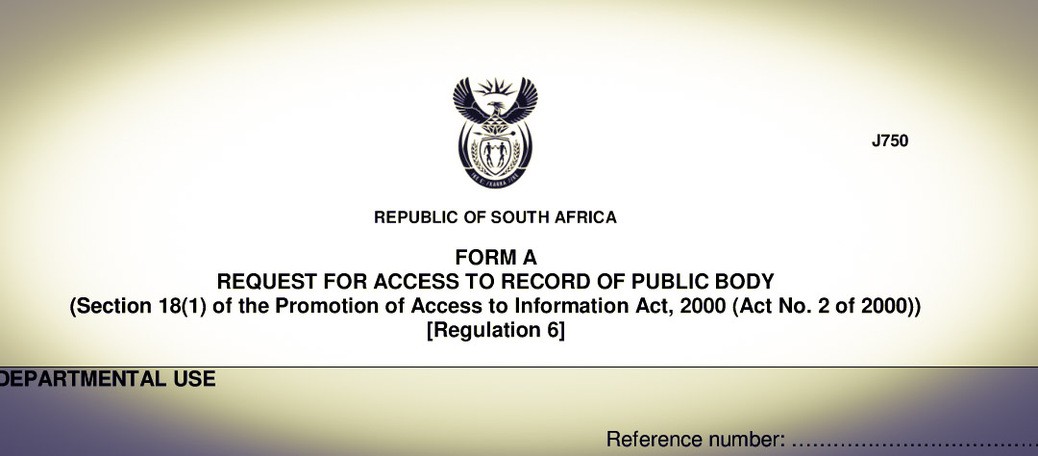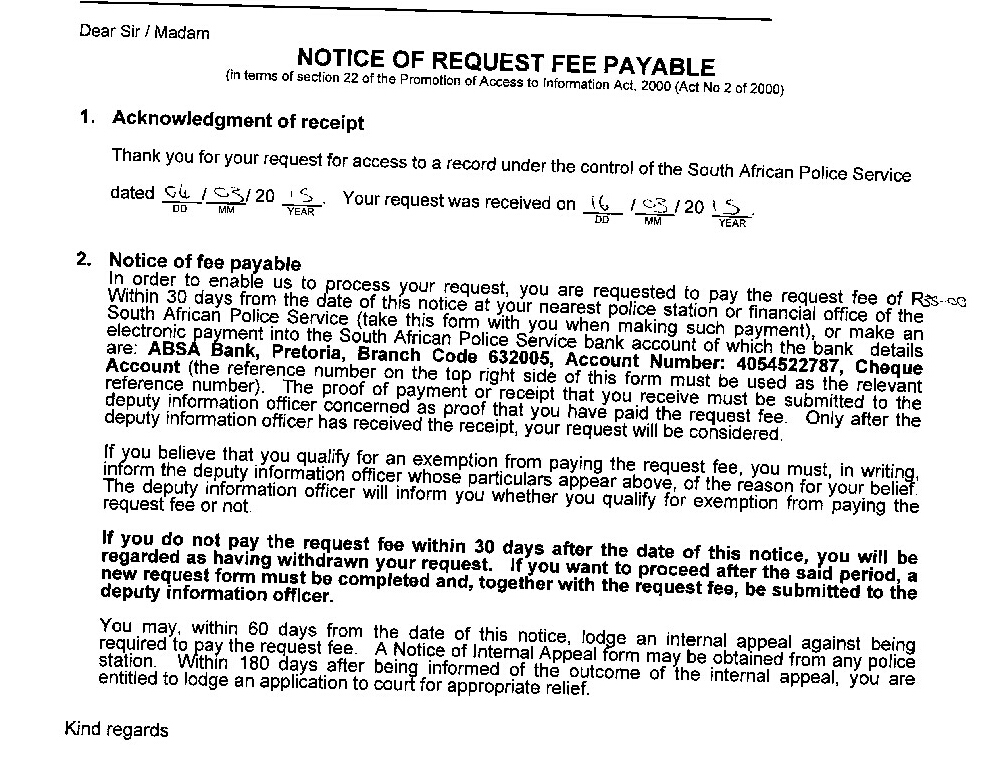After our 5th request for a copy of the #DaggaOps Environment Impact Assessment from the South African Police Service failed we decided it’s time for more drastic legal measures.
In February 2015 a Facebook post of a picture of three Dagga Ops helicopters used in the spraying of dagga crops in the Transkei with glyphosate went viral we felt obligated to ask the South African Police Service a few questions.
The response we received on the 17th of February 2015 from SAPS spokesperson Solomon Makgale:
Good afternoon editor of Dagga Magazine,
Apologies for the delayed response. Your media enquiry on the subject matter dated 2 February 2015 refers.
Kindly receive the response to your enquiry as follows
Question 1: Was an environmental impact study conducted on the harms to the ecosystem and people by routine dagga crops spraying by helicopters?
ANSWER: Yes. A study was conducted in conjunction with SANAB, a file of the study can be made available if required.
Question 2: What chemicals are used by the SAPS Air Wing Dagga Ops to spray dagga crops?
ANSWER: The SAPS Air Wing uses a chemical called Kilo Max which is a glyphosate herbicide family. All precautions as contained in the “instructional pamphlet” are adhered to by members. Kilo Max has been scientifically and biologically proven to be non-toxic to ecosystem and humans. This was also confirmed by the study conducted by Dr Paul Kojo Mensa on the study titled “ Environmental Water quality Management of Glyphosate-based Herbicides in South Africa ,2012. The study was conducted in the Swartkops River (Eastern Cape area), it revealed that using a Glyphosate based herbicides (which Kilo Max is) had a negligible (if not at all) impact on the physicochemical and biological conditions. Therefore allegations that the chemical has a negative impact on the ecosystem and humans is baseless.
Further, all pilots involved in dagga spraying are trained, qualified and certified by both Department of Agriculture, Forestry and Fisheries (DAFF) and Civil Aviation Authority ( SACAA). They are registered with the DAFF and qualified to spray Crops. They have a SACAA Rating on Crop Spraying.
Question 3: Who signed off on the authorisation of Dagga OPS?
ANSWER: The Ops was approved by the Component Head: Operational Mobilisation and Support Services as part of the SAPS Drug Eradication Master Plan. It is an annual Dagga spray operation conducted by the Air Wing and it is contained in the SAPS Section Annual Performance Plan 2014/15.
Then the struggle for information begun
We took up the offer presented by SAPS spokesperson Solomon Makgale and requested that he supply us with a copy of the SANAB Dagga Ops Environment Impact Assessment.
After our initial request was left unanswered we sent a second request for access to the assessment in which we also asked if the South African Police could recite any law that exempts them the from laws prohibiting destruction of property via air spraying without an arrest or physical proof of dagga.
The response we received was very disappointing as it did not contain the environment impact assessment.
Solomon Makgale’s response: “I believe that we have responded to all your questions. There is nothing new to add.”
By the 2nd of March we have sent our 5th request to receive a copy of the document as was offered in our email conversation with the SAPS spokesperson.
On the 3rd of March we decided that it is time to apply for access to information as afforded by the Promotion of Access to Information Act.
A J750 PAIA was filled in and sent off to the Department of Justice who then directed it to the attention of Information Officer at the South African Police Service.
The SAPS information Officer speedily notified us that the request has been received and that it may take up to 30 days to deliver upon the request and that a fee will definitely apply as stipulated in the fees section of the Promotion of Information Act.
Now we eagerly await the deadline which is around the middle of April, just in time for 4.20 D-Day.
The reason why the Environment Impact Assessment is so important is because without the backing of the assessment the it could mean that the South African Police Service have been conducting illegal dagga spray operations for the past 15 years.
Edit: After the article was published, yesterday, on the 17th of March we received confirmation that our application for access to the Dagga Ops Environment Impact Assessment was successful.
They have sent us the Notice of Request Fee and we must now pay R35 to receive the information.
Expect more info soon.
Editor



According to the SAPS website they’ve been spraying for 20 years.
Welcome to PAIA hell – be strong!
Thank you Andre
The affected communities in the Dagga spraying areas should sue the minister of police, according to a post by the Dagga Party the communities have already suffered illness and death besides the fact that their crops and water sources that they depend on for survival have also been contaminated. Copied from the Dagga Party post…> “The man we are here to see is Gamede (not his real name), who is in his 60s. We are told we cannot enter his household for an interview because his family is in mourning. His six-year-old grandchild died a few days ago after vomiting for three days. He greets us on the road. “The helicopters came and sprayed something here that is making our people and livestock sick.”
An old woman passing by stops to look over the visitors. She tells us that her goats are having miscarriages: “They drink the water that was sprayed. We all do.” She shakes her head as she continues on her way.”
http://www.saps.gov.za/newsroom/selnewsdetails.php?nid=4069
20 years of Spraying and look – a cancer hot spot.
Is that from eating contaminated food – as it is the only food available to eat?
I don’t think it’s got anything to do with the time proven method of stone crushing maize; I think it has more to do with eating kilomaxed maize.
http://www.health-e.org.za/2014/02/26/old-transkei-international-cancer-hot-spot/